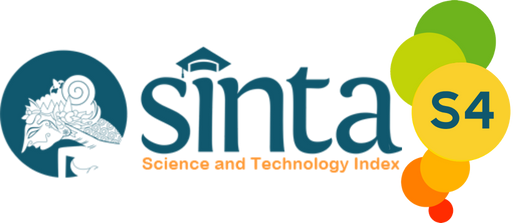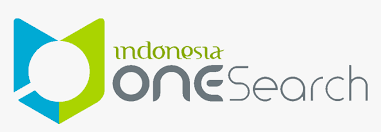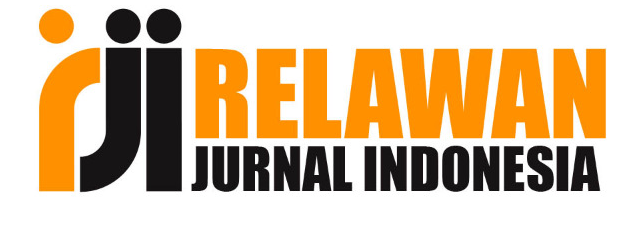The Impact of Islamic Economic Law on Financial Regulation: Evidence from the Indonesian Dual Financial System
Dampak Implementasi Hukum Ekonomi Islam terhadap Regulasi Keuangan: Kajian Sistem Keuangan Ganda Indonesia
DOI:
https://doi.org/10.32939/dhb.v6i2.5863Keywords:
Islamic Economic Law, Financial Regulation, Financial Inclusion, Sharia-compliant Products, Dual Financial SystemAbstract
Purpose: This study examines the impact of Islamic Economic Law on financial regulation within the context of Indonesia’s dual financial system, while addressing the research gap that rarely explores regulatory challenges arising from the integration of conventional and Islamic frameworks.
Design/Methodology/Approach: Employing a mixed-methods approach, this research combines qualitative data from 15 stakeholders—including regulators, academics, and practitioners—with secondary data drawn from institutional reports and reputable journals (2018–2024).
Findings: The results reveal that Islamic Economic Law enhances regulatory ethics and transparency. The integration of Islamic finance fosters financial inclusion. Although the dual financial system offers potential synergies, its implementation remains hindered by regulatory fragmentation and low public literacy.
Research Implications: This study contributes both theoretically—by linking Maqasid al-Shariah to an inclusive regulatory framework—and practically, by providing recommendations for regulatory harmonization between OJK and DSN-MUI, improving financial literacy, and fostering product innovation. The findings affirm Indonesia’s position as a potential global reference for the integration of ethical finance.
Downloads
References
Abdullah, N., & Karim, R. (2021). Harmonization of Sharia governance: Lessons from Malaysia and Indonesia. Asian Journal of Islamic Management, 3(2), 110–125.
Astohar, A., Praptitorini, M. D., Suyatno, M. I. Y., & Aulia, J. (2023). Peran inklusi keuangan dalam memediasi pengaruh financial technology dan literasi keuangan terhadap kinerja UMKM di Kota Semarang. Jurnal Akuntan Publik, 1(3), 426–443.
Chapra, M. U. (1992). Islam and the economic challenge. Leicester: Islamic Foundation.
Desiana., Salsabila. R., Sarmigi. E. (2025). Unlocking Real Sector Growth through Sukuk: Regulatory Challenges and Developmental Impacts in Indonesia. Al-Iqtishad: Jurnal Ilmu Ekonomi Syariah, 17(1).https://doi.org/10.15408/aiq.v17i1.44906
Ernaningsih, I. (2024). Competition, regulation, and systemic risk in dual banking. Journal of Financial Stability.
Fidhayanti, D., Noh, M. S. M., Hanafi, H., & Satria, M. H. (2025). Legal and regulatory frameworks in Islamic FinTech: Comparative insights from Indonesia and Malaysia. Jambura Law Review, 7(2), 664–695.
Fikri, I., Seftarita, C., & Abrar, M. (2024). Investigating the mediating role of Islamic banking intermediation in promoting economic growth in Aceh. International Journal of Finance, Economics and Business.
Franciosi, L. M. (2025). Islamic finance and sustainable development: Key ethical implications. European Journal of Islamic Finance.
Hamidi, I., Fadillah, A. H., Bashir, A., Saputra, A., & Yarsah, W. N. (2025). Islamic financial inclusion and economic growth: Empirical evidence from Indonesia. Indonesian Interdisciplinary Journal of Sharia Economics, 8(2), 2887–2902.
Haryono, G., Sarmigi, E., & Siswadhi, F. (2024). Analysis of tourist satisfaction in realising returns and recommending rural tourism destinations in Jambi province. JPPI (Jurnal Penelitian Pendidikan Indonesia), 10(4), 145-154.
Hasan, Z. (2020). Sharia governance in Islamic finance: The Malaysian experience. Journal of Islamic Accounting and Business Research, 11(3), 456–472.
Khan, F. (2021). Financial inclusion and Islamic finance: Evidence from Pakistan. Journal of Islamic Finance, 10(2), 45–60.
Kusumawardani, A., Savitri, D. A. M., Suyatno, M. I. Y., Prasetya, A. Y., & … (2023). Pemberdayaan UMKM dan masyarakat desa melalui manajemen keuangan dan pemasaran digital: Strategi mewujudkan kemandirian ekonomi di Desa Purwokerto, Kecamatan Brangsong. Jurnal Vokasi, 9(2), 186–192.
Kusumawardani, A., Suyatno, M. I. Y., Andanarini, D., Salim, N., & Rama, E. (2021). Digitalization, self-esteem, and self-efficacy in accountability village fund management. Proceedings of the International Conference of Business and Social Sciences (ICoBuss), 1390–1402.
Lusardi, A., & Mitchell, O. S. (2011). Financial literacy and planning: Implications for retirement wellbeing. NBER Working Paper No. 17078.
Muhyiddin Khotib, A., & Siddiqi, M. A. (2025). How can Islamic banking thrive in a dual banking system?: Legal and economic perspectives. Al-Insyiroh Jurnal Studi Keislaman.
Nur, M. (2020). Literacy and financial inclusion in Islamic microfinance. International Journal of Islamic Economics and Finance Studies, 6(1), 88–104.
Otoritas Jasa Keuangan. (2023). Indonesian Islamic Financial Development Report 2022. Jakarta: OJK.
Otoritas Jasa Keuangan. (2024). Indonesian Islamic Financial Development Report 2023. Jakarta: OJK.
Rahman, A., & Ahmad, K. (2023). Dual banking system and regulatory challenges in Southeast Asia. Journal of Financial Regulation, 15(2), 134–152.
Sarmigi, E., Rahayu, S., & Arum, E. D. P. (2025). Against Fraud: How Religious-Based Values Accounting Work. TSAQAFAH, 21(1), 139-158.
Sarmigi, E., Rahayu, S., & Arum, E. D. P., Wijaya, R. (2025). Causes And Prevention Of Fraud In Management Of Village Funds: Literature Review. Procedia Environmental Science, Engineering and Management, 12(2), 301-312.
Suhardi, S. (2025). Mapping Islamic financial inclusion literature: Trends, key issues, and future research directions. Indonesia Accounting Research Journal, 12(4), 149–163.
World Bank. (2022). The role of Islamic finance in financial inclusion: Global evidence and policy lessons. Washington, DC: World Bank.
Downloads
Published
How to Cite
Issue
Section
License
Copyright (c) 2025 Maulana Ihsan Yusufi Suyatno, Anisa Kusumawardani, Mirna Dyah Praptitorini, Primadhani Dyah Larasati Suyatno

This work is licensed under a Creative Commons Attribution 4.0 International License.













